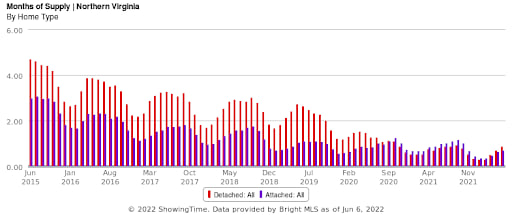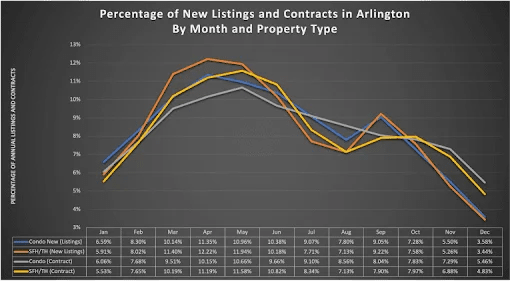Question: I have seen and heard that homes are sitting on the market and reducing prices lately, is it still a good time to sell?
Answer: I’ve noted in some recent articles (example) that we’ve seen a shift in market conditions; beginning around late April/early May when rates started hitting 5%+, the stock market struggles became more serious, and more banks and economists indicated higher risks of a recession. If you’ve followed national news, you’ve also likely read about cooling across the country, including some of the markets that led the market boom over the last ~18-22 months.
For the first time in a long time, homeowners are asking if now is a good or bad time to sell. There’s no one answer for everybody, but here are some things that everybody should consider.
It’s a Seller Market, Concerns are (Mostly) Relative
We are still very much in a seller’s market, but it seems worrisome because we are transitioning out of a historically insane seller’s market that we may not see again for a long time. So, the perception that the market is struggling is relative to what we’ve seen in the last ~18-22 months, but still looks quite favorable relative to a longer-term view.
The chart below shows Months of Supply (the lower it is, the stronger the market is for sellers) in Northern VA for detached (single-family) and attached (townhouse/condo) homes. MoS is increasing (and I expect to see a sharper increase in the chart in future months) but still very low relative to historical standards with quite a ways to go before it even reaches 5-10-year averages.

But what about the price reductions? It is accurate that more properties (including single-family homes in good condition) are going through price reductions to attract buyers, but that can be expected during a transition period as sellers and buyers adjust to new market conditions. A lot of the price reductions I’m seeing are to properties that overshot their asking price because they likely expected momentum to continue from earlier this year.
Interest Rate Problem
Interest rates are the biggest problem and biggest unknown in predicting how the market will hold up through the remainder of the year. Most experts expect rates to end the year at around 5%, but it’s very difficult to say what the path there will look like. For rates to finish the year around 5%, we will have to get inflation numbers under control, and that has proven more difficult and less predictable than expected.
If rates continue to rise and reach the 6.5%-7% range, I think that we will see a very negative reaction in demand and motivated sellers will end up taking sizeable discounts to push a sale through. However, it seems more plausible that rates have peaked, will level off, and hopefully, begin to fall slowly as inflation comes under control.
Stability in the rate market is critical to maintaining demand at this point and if we move into an environment with gradually falling rates, we should see demand tick up.
Keep Seasonality in Mind
If you plan to sell in the second half of the year, make sure to account for seasonality in setting proper expectations. Historically, we experience a slower, less active market (on both the supply and demand side) in the second half of the year. Couple that with the macroeconomics that has created headwinds over the past two months, and you’ll need to calibrate expectations accordingly. The chart below shows historical monthly activity for supply and contracts during a normal year in Arlington.
July, August, November, and December tend to bring notably less demand (holidays slower than summer) with a moderate bump in activity after Labor Day, through October/early November.

Finally, Homes to Move Into
This may seem counterintuitive, but for a lot of (potential) sellers, a slower market may be a good thing if you are also looking to buy. Depending on your situation, you could benefit more from a slower market as a buyer than you suffer from it as a seller. This will depend on what you’re selling, what you’re buying, where you’re buying, your financing, and more.
Seller concerns over becoming buyers in a market that was producing double-digit offers and contracts within days were keeping many homeowners from moving and thus furthering the supply/demand gap we were dealing with.
Statistics vs Real-Life
The question of when to buy and sell is popular and there are several ways to make an informed decision using historical data, but when you look at that data, the success metrics are not vastly different between the best and worst times of the year. Plus, timing markets is nearly impossible. Your situation(s) and preference(s) should be the most important factors in deciding when the right time is to sell (or buy).
If you’d like to discuss buying, selling, investing, or renting, don’t hesitate to reach out to me at [email protected].
If you’d like a question answered in my weekly column or to discuss buying, selling, renting, or investing, please send an email to [email protected]. To read any of my older posts, visit the blog section of my website at EliResidential.com. Call me directly at (703) 539-2529.
Video summaries of some articles can be found on YouTube on the Ask Eli, Live With Jean playlist.
Eli Tucker is a licensed Realtor in Virginia, Washington DC, and Maryland with RLAH Real Estate, 4040 N Fairfax Dr #10C Arlington VA 22203. (703) 390-9460.




